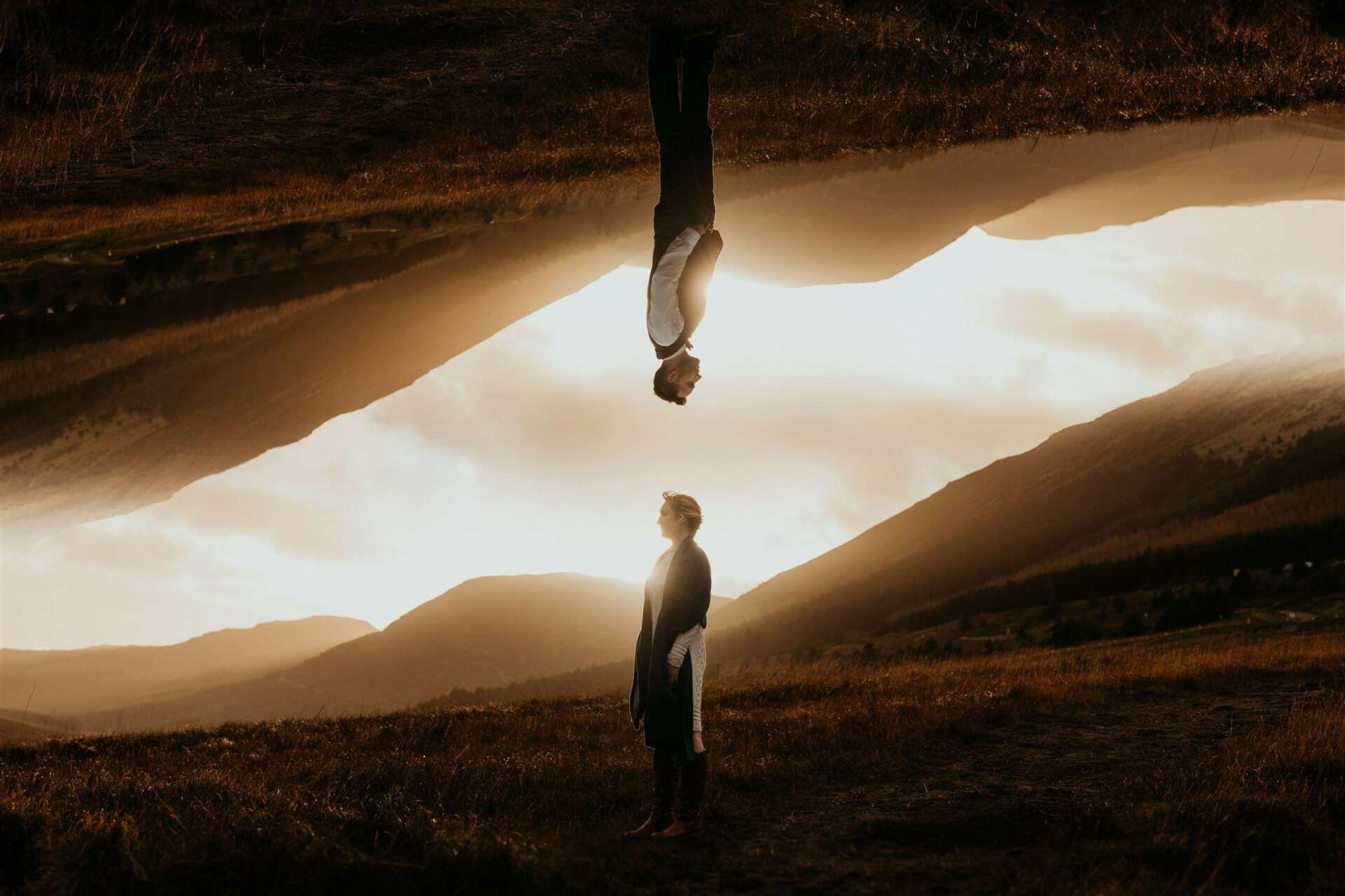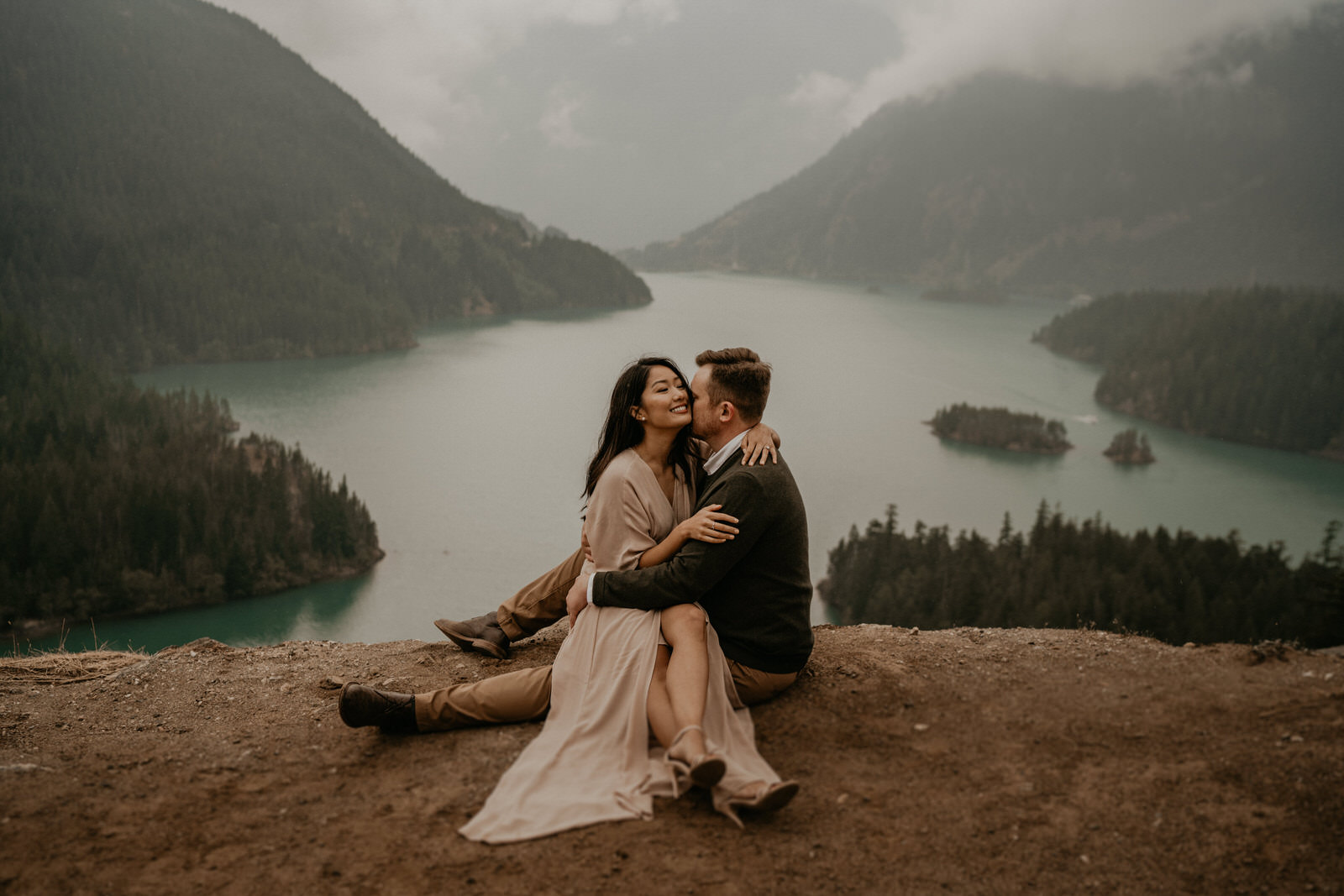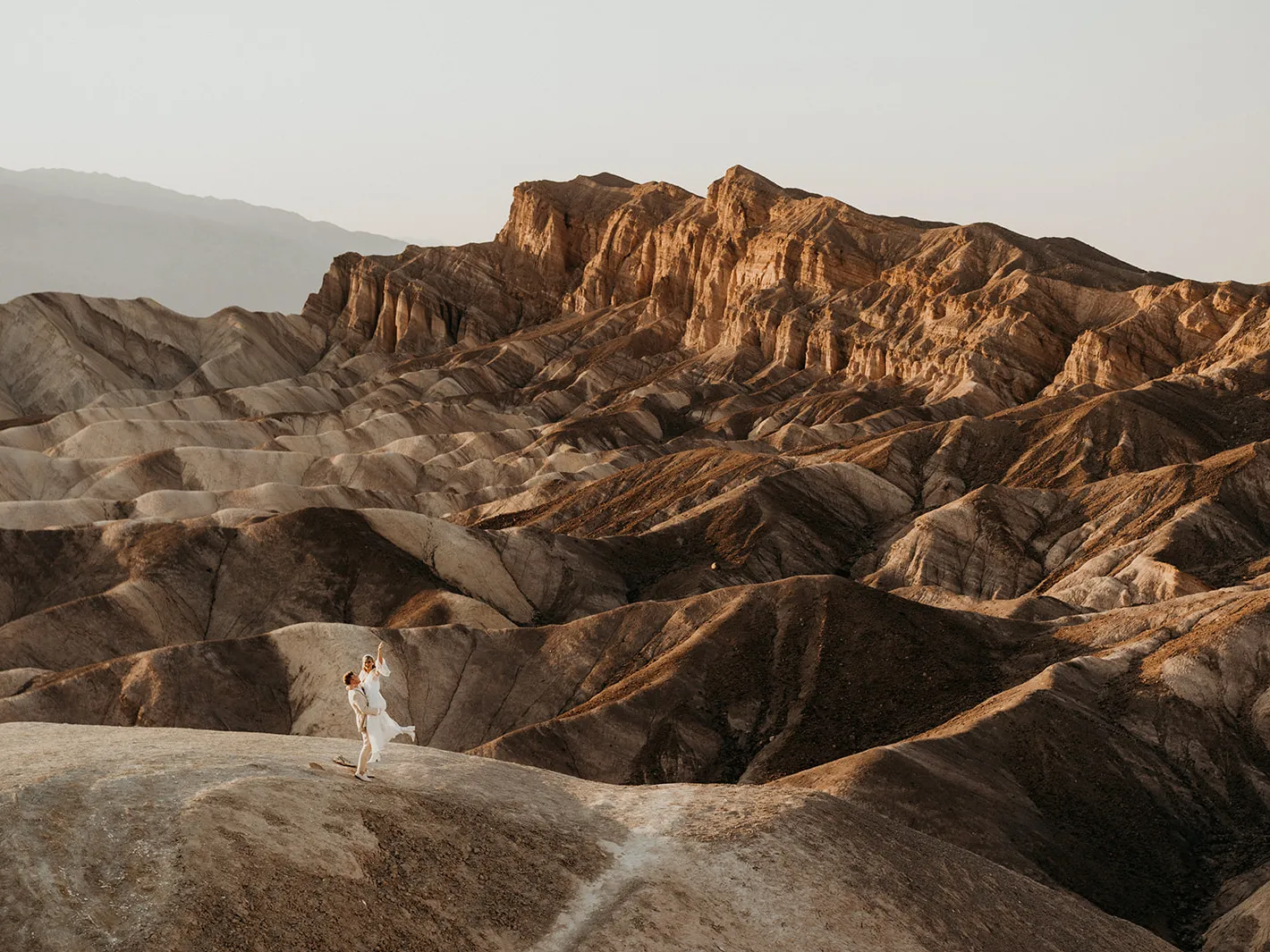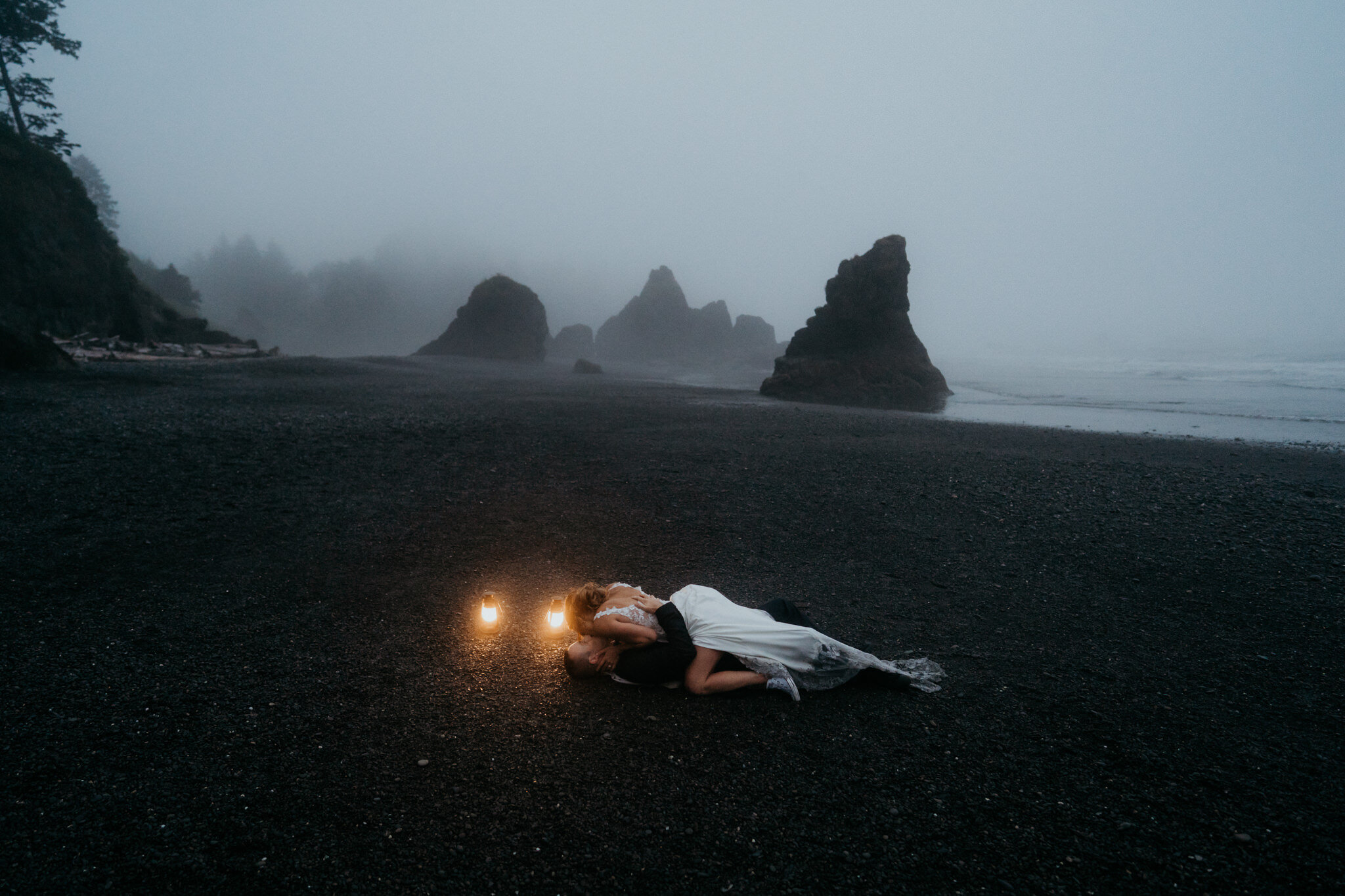Beyond My Lens: Photographer Katie Levine’s Storytelling Podcast, Supported by Narrative
Blog
By Kyle Wilson
Henry Tieu is an expert in adventure elopement and intimate wedding photography in Seattle, Washington. His journey from a cardiac ICU nurse to a renowned photographer and mentor has given him unique insights into the photography industry. He talks with Kyle Wilson about charging what you're worth, getting more Google reviews, and building a brand.
KW: What has been your most proud moment in your career?
HT: The proudest has to be when I completely quit my full-time job as a nurse. I worked in a cardiac ICU, so that required a lot of education, and just to walk away from that was scary at first. But looking back, it was one of the best decisions I made for my photography career.
KW: That's amazing. How long has that been now?
HT: I walked away in late 2019. I did come back for a little bit in the pandemic of 2020 because my manager texted and said they were running out of nurses. They turned my ICU into Covid ICU, so you need even more people because it's usually one nurse on one patient.

KW: What's been your worst business decision?
HT: The worst thing that I did was not charging my worth. Charging your worth sounds so fluffy. Like how do I measure my worth? How do I know? I think I was charging so low because I was stuck in my head, thinking I was only worth that much. I cannot raise my price because then nobody would book me. There’s a story I share with some of my mentees about an engagement shoot I did early on. The couple texted me months later after their elopement and they thanked me for showing them how to pose because they used that knowledge in their elopement photos. Knowing that I was able to deliver something that they hold on to and bring to the next chapter of their life really made me realize I'm worth more than just that one day. Like these photos carry on.
KW: I love hearing the early stories of successful wedding photographers like yourself.
HT: My story, and I'm pretty sure so many photographers' stories out there, none of us really go into this industry thinking this is where the money is. The thing about being a photographer dealing with art and pursuing photography is it is so risky. When you look at the industry as a whole, many of us are just trying our best. We just want to take beautiful photos and we want to help someone on their wedding day. It took lots of hustling to build a brand that people can recognize and trust. But I think people don't see that we all have to go through a period of a career that people don't know about. And that's a beautiful thing.
KW: What's been your best business decision?
HT: The best business decision has to be when I recognize that there's enough room for everybody in this industry and I don't have to please everybody. Ever since I realized that I niched down to do what I actually wanted to do. I now get to say what I want to do on my website and push it out there on my social media channels, and that just attracts the kind of clients that are aligned with the kind of work I want to do.

KW: Are you doing any advertising?
HT: At first, when I was still doing full-time nursing, I would post on Instagram, and somehow, someone would find it and book me. But then, if I don't post, I don't get booked. You might get some engagement within the first 24 hours, and it's kind of gone after that. When I transitioned from being a full-time nurse to a part-time nurse and a part-time photographer, I invested a lot of my time and energy into learning SEO. Now, the majority of clients find me through Google. That's always the thing that I rely on the most.
KW: What is your current problem that you’re trying to fix?
HT: My current problem is I am in the middle of rebranding and thinking about my future, like what do I really want to do? I want to spend more time at home instead of on the road. I've been trying to rebrand myself so that when people visit my website, they can see more examples of wedding photography and not just elopement. But I don't want the intimate wedding couple to feel I don't take them.
KW: I saw you had a massive number of Google reviews which is really beneficial. Are you asking clients for that within your workflow, or has it happened naturally?
HT: I ask every single couple to leave me a review. In my workflow, I ask them to leave me a review on Google and, if they have time, copy and paste it into my WeddingWire listing. You have to put yourself in the shoes of the clients. People might not know what to say, how to write it and how long it will take. Spell out in your email how important this is for a small business like mine, like how your review can help me get more clients just like them, and it will take you three to four minutes to do. Right away, people can say, ah, this will not take long.

KW: That's a really great piece of advice. Client education should be at the forefront. Have you had any bad reviews that you've had to deal with?
HT: I did have one. For someone who's listening to this right now and you have a one-star review, you don't have to freak out. The fact that you have other positive reviews might drown out the one negative one. You're not a bad person or a bad photographer if you have a negative review, and in all honesty, from what I've learned, if you have a negative review on your Google, it actually helps your Google search sometimes because it shows that you are real.
KW: I think it does drown out. If I were to go purchase anything from Amazon or a burger down the street, if I saw 99 good reviews for a burger and then one where someone said, this was the worst - it's probably still a pretty good burger.
HT: You could get 99 beautiful five-star reviews, and you get that one, and you won't sleep that night, and for the next couple weeks and years from now, it's like PTSD. One of those things about being human is that people could say one negative - not even entirely negative, could be not as ideal a compliment - and they keep us awake at night. Like, just know that it's okay. We're all trying our best every day, you know? Whenever things don't go as planned, I ask myself, Have I tried my absolute best? Did I educate these clients? Did I communicate with them in advance? If something is within my control that I didn't do, that goes into my client resources.
KW: Do you have an emergency kit in your bag?
HT: Yes. Once, I did this wedding with my husband; he's a wedding planner and stylist. And while getting ready, the dress could not be zipped. Someone broke the zipper literally trying to zip up the dress. My husband pulled out the sewing kit and sewed her into the dress. At the end of the day, we had to get a pair of scissors and really cut her out of her dress. Things like that can happen.
KW: Pieces of information like this, like trying to get Google reviews or having a sewing kit on hand, are killer. Not only does it make everybody in the wedding party think you're a badass prepared wedding photographer, but it also helps the day go better, and that's way better for you.
HT: Also, if you’re shooting a wedding or even an intimate elopement with some guests, going above and beyond, you’re really marketing yourself there. You’re advertising yourself to the bridesmaids, to the maid of honor, to the one who will be getting married, or they have already been married but they know someone who might need a photographer at a later date. And that’s just free advertising right there.

KW: And if you're booking the right clients, the people they surround themselves with are just more of them, and those are the people you want. This is a really distinct question, but I think every region of the country engages in this differently. What are your vendor relations like? Let's say I'm a florist, and I want your photos. Can I get those? Will I get a gallery of those when the wedding's wrapped? Do I need to pay for them? What's your process for that?
HT: I love supporting fellow small businesses. It doesn't cost me anything just to send photos to people. If anything, it would gain me more credibility and put my name out there. I ask for a backlink when they put the photo on their website. Backlinks show Google your domain authority so your content would be ranked higher. There is one thing that I always want to make sure of, though even though I am the photographer who has rights to the photo and the client signed a contract saying that I have full rights, I still view wedding photos as very intimate. So, I ask permission from the couple in one of my questionnaires that I send out one month before the shoot.
KW: That is a good approach and an important one to remember. They are legally our images, but there's some morality and ethics within that power. What do you have going on this year that you're looking forward to?
HT: Last year, I worked with Adventure Instead to release the course "The Art of Adventure Weddings and Elopement." We filmed for a whole year. There's a total of 42 videos. Each is about two hours to teach everything you need to know about planning an elopement, helping couples photograph, and understanding composition storytelling. It's a huge course. Every time we open up for enrollment, we can only open for seven days, and we have to close it so the people who enroll can actually get support from us. They join a private Facebook VIP group, so we can be their resource if they have questions and concerns. The next time it will be reopened will be in March 2024.

In terms of other fun stuff, I have the HD preset 'The Blue Hour' that I am working on. And I'm super excited for the end of this year when I stop photographing elopements and do mentorships. I have some photographers who're flying in to do one-on-one in-person mentorship. Some photographers want to learn about the art of photography, not the business side of it. Then, the other half wants to learn about SEO, marketing, and building a brand that attracts people from the get-go. Photographers that get booked from Instagram, you know that clients see your journey and you can build trust. But what about clients who found you on Google? Building trust with those clients differs from building trust with social media clients. So, some photographers want to learn about SEO to set it up and let it grow and do its own thing.
KW: Thanks for taking the time today. I really appreciate you're so transparent with everything you talk about.
HT: Thank you so much for taking the time to interview me. It has been so fun just to talk about whatever, and you're such a good host, too.
Learn how to grow your successful wedding/elopement photography business with Henry’s extensive educational resources at henry-tieu.com.
This interview has been edited and condensed. Check out “The Photographer’s Problem: A Narrative Podcast” streaming now on YouTube or Spotify for the full, unedited interview and more inspiring stories with an immersive look into the intricate world of photography.